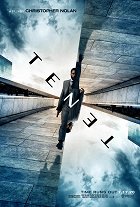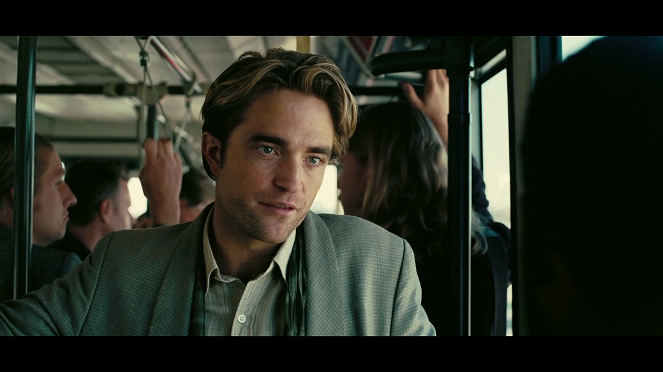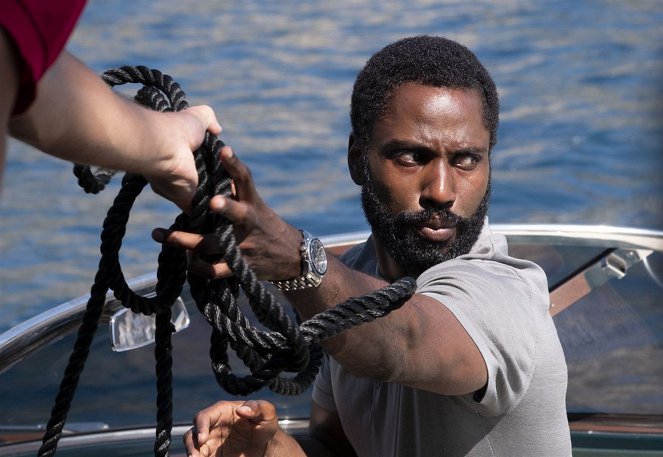Directed by:
Christopher NolanScreenplay:
Christopher NolanCinematography:
Hoyte van HoytemaComposer:
Ludwig GöranssonCast:
John David Washington, Robert Pattinson, Elizabeth Debicki, Kenneth Branagh, Aaron Taylor-Johnson, Michael Caine, Clémence Poésy, Dimple Kapadia (more)VOD (3)
Plots(1)
Armed with only one word - Tenet - and fighting for the survival of the entire world, the Protagonist journeys through a twilight world of international espionage on a mission that will unfold in something beyond real time. (Warner Bros. US)
Videos (5)
Reviews (21)
What happened (didn't happen). The opening plays with the idea of Lipsky´s Happy End, Moffat´s saga about River Song, the third Harry Potter movie and the The Sensational Reverse Brothers. Yes, it is undeniably closest to “the palindromic Inception", but with a differently conceived disruption of reality and time. From filmmaking perspective, it is again an extremely well-worked-out blockbuster “with people in suits in the same way as in a Bond movie", which at the same time does not let the brain idle. And it's purely Nolan: cold, reserved, depersonalized, sophisticated, precise and almost procedural. Which, although not many see it, is not a disadvantage this time, but an advantage. Compared to Inception, the biggest difference, apart from the surprisingly frequent and scaled-up ideas of breathtaking action based on practical effects and stunts, is that it does not give the viewer any explanation. Where Inception gradually went over the rules and clarified them, Tenet recklessly jumps right into them (especially in the final third). However, the source of “mindfucking" is not so much in the incomprehensibility/abstraction of that concept, but rather in keeping track of all of the events. And that at the end, at such a furious pace (the sophisticated audiovisual excuses helping the viewer slowly disappear), there are so many levels and storylines that it overwhelms all senses and does not change the overall level of comprehensibility at all. PS: Nolan simply has to adapt Sweterlitsch's “The Gone World" and no one can change my mind about that.
()
For me, the best Nolan since Inception, i.e. in ten years, but with some “buts”. The most important of which is that the barrage is so relentless that it’s impossible to absorb. By this I don’t mean the big picture, which is pretty clear and sensible by the end, but the details during the journey. What was the role of several secondary characters in the story as a whole? What was the thought process that led the protagonists to choose the plans they choose in several parts of the story? How did they know where to go, etc. All the dialogues (and there are lots of them!) are simply reduced to the exchange of vital information, and there are so many that most people, myself included, are unable to remember them well enough, let alone connect them to all the other information that was given before and all the other information that is yet to be given, and I don’t think this is our mistake. If Tenet had the same amount of plot but was twice as long, I would have objectively enjoyed it more. As it is, I would have to watch it at least once more and hope to make sense of those smaller bits. Regardless, technically it’s awesome and the concept is brilliant. The scenes that mix events going forward and backward in time are unlike any other film and there where moments I thought my head would explode. This is exactly I want from Nolan, so I am very satisfied, though I understand people who aren’t or won’t be so, if only because Nolan doesn’t know how to work with female characters, that’s an objective fact. PS (Spoiler): If we consider the motivations of the “villains” (the invisible ones, not the Russian guy), shouldn’t we be actually rooting for them? :)
()
Tenet certainly doesn't pose an intellectual challenge and is one of those films that you'll enjoy the most when you think less about time paradoxes, the motives of the film's characters, and their quest to defeat the Bond-like villain. As a popcorn flick deliberately reminiscent of Agent 007 stories in a sci-fi coat, and as an action spectacle, Nolan's film really works. Thanks to John David Washington, we essentially have the first "non-white" Bond in history. I enjoyed the dynamic opening opera heist, where Nolan drew inspiration from a real terrorist act. Kenneth Branagh also pleased me, intentionally building his villain as a monstrous comic book character. Overall impression: 65%.
()
I don’t want to be mean to Tenet. Yes, I enjoyed it as a solution to a quadratic equation, as an endless conversation with an android in whom someone implanted the EgoBooster 3000 chip. Yes, I understand who the protagonist is here and I will not haggle with a person who understands entropy and is not afraid to use it. But no one can expect that this ostentatiously conducted puppet show full of flatly-spoken phrases and motivations subject to narrative mechanics will evoke in me anything that is even remotely close to fascination, and even further away from emotional investment. In short, I cared even less about Tenet than Inception and Interstellar combined, and my degree of indifference was far greater regarding the film about people waiting on the beach, with a few other approaching them whose watches move at different speeds. For me, Nolan has changed from a magician who could draw me into his intricate magic into a puppeteer morbidly obsessed with wires and switches. I understand that it doesn't matter that McGuffin was pulled out of someone’s ass – it only matters that he functions in an entropic bidirectional. Ok, if this is a Bond film for future generations, I'm glad I grew up with the past one, which discovered insight and later the basics of psychology.
()
A banal plot in which two characters (a man and a woman with chemistry) speak normally and everyone else in such coded language that it could be developed without conspicuous illogic into a seemingly ultra-sophisticated spectacle packed with unexpected situations and unprecedented visual attractions. Or rather, one unprecedented attraction, when in one shot some characters run forward and others backwards and it looks neither ridiculous nor strange, but on the contrary, fresh and spectacular. Nolan clearly and meaningfully declared his fetish for time paradoxes in Inception and now he’s merely changing it up on other theoretical levels and interweaving it with new sub-genre elements (in this case, Bond films). And he increasingly equivocates, pretends and artificially complicates things as much as possible in order to push everything farther and higher than last time, while cleverly hiding the absence of a supporting foundation for the plot (which was dreams in Inception). Winking at the thoughtful viewer with lines like "You have no idea what I'm talking about...” Answer: “No, but it sounds extremely important" can thus be understood as passing the buck, but I see it rather as a plea for leniency towards the deliberate gaps in logic and, conversely, appreciation of his courage and exceptional genre progressiveness. Tenet is a techno-thriller from another dimension. In the context of the viewer’s state of mind induced by the film, the last scene with Pattinson reminded me of Casper Van Dien in Starship Troopers, which almost made me laugh in places with its cheesy absurdity. Actually, that was the best thing that could have happened to me with Tenet, if I'm supposed to like it. P.S. Göransson’s music is outstanding, as it gives the film a more energetic and innovative tone than we would expect from Zimmer (whose music, however, would be more enjoyable to listen to on its own).
()



Ads